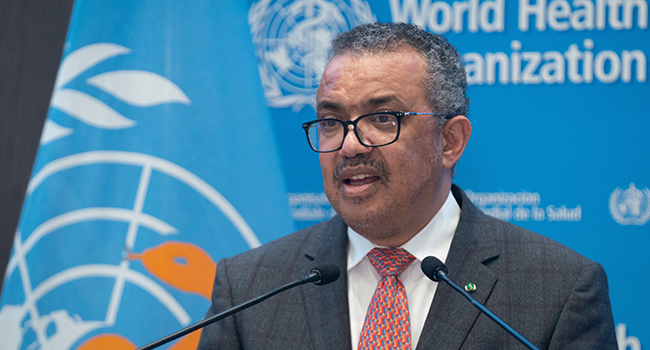The World Health Organization on Wednesday warned of “concerning trends” for Covid-19 ahead of winter in the Northern Hemisphere, calling for increased vaccinations and surveillance.
While data is limited because many countries have stopped reporting Covid data, the UN health agency estimated that hundreds of thousands of people around the world were currently hospitalised with the virus.
“We continue to see concerning trends for Covid-19 ahead of the winter season in the Northern Hemisphere,” WHO chief Tedros Adhanom Ghebreyesus told an online press conference.
“Deaths are increasing in some parts of the Middle East and Asia, intensive care unit admissions are increasing in Europe and hospitalisations are increasing in several regions,” he said.
But only 43 countries — less than a quarter of the 194 WHO member states — are reporting Covid deaths to the agency, and only 20 provide information about hospitalisations, he added.
“We estimate that there are hundreds of thousands of people in hospital now for Covid,” said Maria Van Kerkhove, the WHO’s technical lead on Covid-19.
“That is a worry given that when we get to colder months, in some countries, people tend to spend more time indoors together, and viruses that transmit through the air like Covid will take advantage of that,” she added.
With influenza and RSV also circulating, Van Kerkhove emphasised the importance of testing, as well as vaccination.
Tedros said while there is not currently a single dominant Covid variant worldwide, the EG.5 Omicron subvariant is on the rise.
Small numbers of the highly mutated BA.2.86 subvariant have also now been detected in 11 countries, Tedros said. The WHO is “monitoring this variant closely to assess its transmissibility and potential impact,” he added.
Preliminary data suggests that existing vaccines will give protection against BA.2.86, Van Kerkhove said.
One of WHO’s biggest concerns was how few at-risk people had recently received a Covid jab, Tedros said, calling for the vulnerable not to wait to get a booster dose.
“The increase in hospitalisations and deaths shows that Covid-19 is here to stay, and that we will continue to need tools to fight it,” Tedros said.
Last week, the WHO announced that a global knowledge-sharing platform about Covid called C-TAP had secured three new licensing agreements to transfer vaccine technologies.




